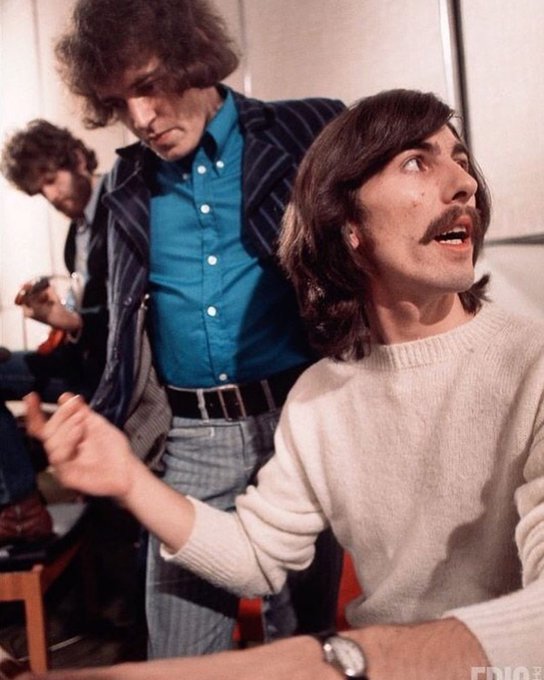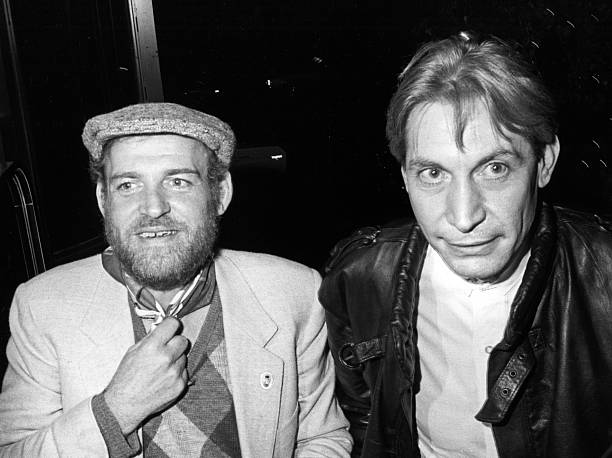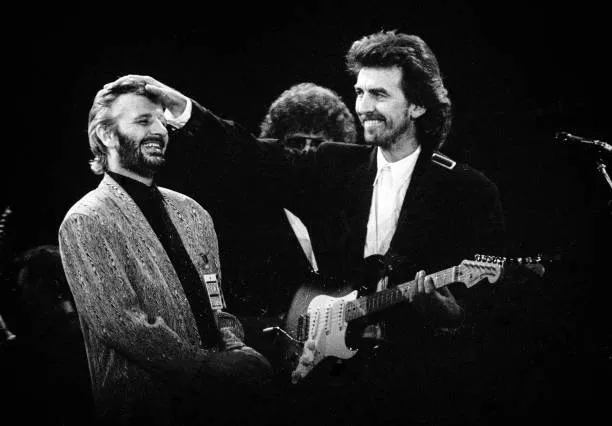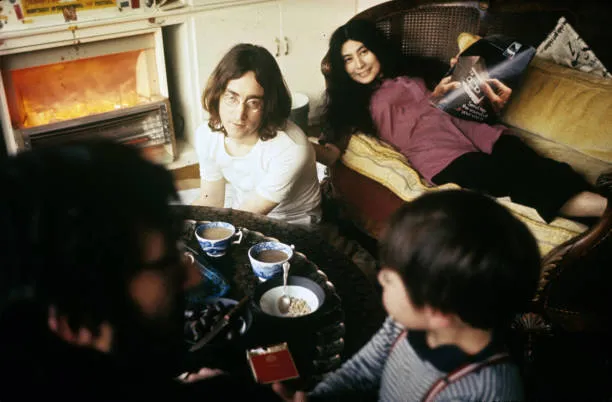Joe Cocker, known for his distinctive gravelly voice and soulful interpretations, is one of rock music's most iconic figures.
His career, which spans several decades, has produced numerous memorable performances and timeless hits.
But behind every great artist is a tapestry of influences that shape their sound, style, and approach to music.
This article delves into the figures who inspired Joe Cocker, exploring how these influences contributed to his development as a musician and the distinctive artistry that made him a legend.
The Roots of Joe Cocker's Musical Journey
Born on May 20, 1944, in Sheffield, England, Joe Cocker's musical journey began in a working-class neighborhood, where he was surrounded by the sounds of post-war Britain.
His early exposure to music came through listening to his family's radio and the records his brother brought home.
Influenced by the raw emotion and social context of blues, soul, and rock 'n' roll, Cocker developed a passion that would soon define his life's path.
Ray Charles: The Soulful Pioneer

One of the most significant influences on Joe Cocker was the legendary Ray Charles.
Charles, known as "The Genius," was a pioneer of soul music, merging gospel, blues, and jazz into a sound that was uniquely his own.
Cocker was deeply moved by Charles's emotive singing and expressive delivery.
Cocker often cited Charles as his primary influence, noting the profound impact of songs like "Georgia on My Mind" and "What'd I Say."
The way Charles conveyed emotion through his voice and piano playing resonated with Cocker, shaping his approach to performance.
Cocker's gritty, soulful style can be seen as a homage to Charles's ability to blend raw emotion with musical precision.
The Beatles: Revolutionizing Music

The Beatles, arguably the most influential band of all time, played a crucial role in shaping Joe Cocker's musical vision.
The Beatles revolutionized the music industry with their innovative songwriting, harmonic complexity, and genre-blending compositions.
Their groundbreaking album "Sgt. Pepper's Lonely Hearts Club Band" left a lasting impression on Cocker and many musicians of his era.
Cocker's admiration for The Beatles culminated in his iconic cover of "With a Little Help from My Friends."
His rendition, characterized by its soulful depth and powerful delivery, transformed the originally upbeat Beatles track into an emotional anthem.
This cover became one of Cocker's signature songs, showcasing his ability to reinterpret and elevate existing material.
The Rolling Stones: Raw Energy and Rebellion

The Rolling Stones, often seen as the ultimate rock 'n' roll band, infused their music with a raw energy and rebellious spirit that resonated with Joe Cocker.
Fronted by Mick Jagger, the Stones' style was a potent mix of blues, rock, and rhythm and blues (R&B).
Their influence on Cocker was evident in his stage presence, vocal delivery, and choice of material.
Cocker's renditions of songs like "Honky Tonk Women" and "Jumpin' Jack Flash" reflected his ability to capture the Stones' gritty essence while adding his own unique flair.
The Stones' defiance and unapologetic approach to music inspired Cocker to push boundaries and embrace the raw, emotional core of his performances.
Other Blues and Soul Legends
Beyond Ray Charles and the Stones, numerous other blues and soul legends left their mark on Joe Cocker's musical development.
Artists such as Muddy Waters, Howlin’ Wolf, and Etta James provided a rich tapestry of influences that Cocker drew from throughout his career.
Muddy Waters: Known as the "father of modern Chicago blues," Waters' electrifying guitar work and commanding voice introduced Cocker to the depth and power of the blues.
Waters' songs, like "Mannish Boy" and "Hoochie Coochie Man," inspired Cocker to explore the blues' emotional intensity and storytelling tradition.
Howlin' Wolf: With his growling voice and larger-than-life presence, Howlin' Wolf epitomized the raw energy of the blues. Cocker admired Wolf's ability to convey passion and intensity, incorporating these elements into his singing style.
Etta James: A powerhouse vocalist known for her hits like "At Last" and "Tell Mama," Etta James showcased the blending of blues, soul, and R&B. Cocker valued her emotive delivery and ability to connect with audiences on a profound level.
Gospel Music: Spirituality and Soul
Joe Cocker's influence wasn't confined to secular music; gospel had a profound impact on his development as well.
The spiritual intensity and emotional depth of gospel music resonated with Cocker, providing him with a foundation for his own soulful expression.
Inspirations from gospel included:
Mahalia Jackson: Known as the "Queen of Gospel," Jackson's powerful voice and heartfelt performances left a lasting impression on Cocker. Her influence is evident in Cocker's passionate delivery and his ability to convey emotion through music.
Aretha Franklin: The "Queen of Soul" bridged gospel and secular music with her powerful vocals and emotive performances. Her gospel-influenced style served as a blueprint for Cocker's approach to interpreting songs with emotional resonance.
Folk and Rock Giants
The folk and rock influences in Joe Cocker's music were equally significant, contributing to his wide-ranging appeal and versatility.
Artists like Bob Dylan and The Band introduced Cocker to different styles while reinforcing the importance of lyrical storytelling and authentic expression.
Bob Dylan: As one of the most influential songwriters in modern music, Dylan's poetic lyrics and socially conscious themes left an indelible mark on Cocker. Cocker found inspiration in Dylan's ability to craft compelling narratives, influencing his song choices and interpretive style.
The Band: Collaborating with Dylan and forging their path, The Band represented a fusion of folk, rock, and Americana. Cocker's covers of songs like "The Weight" displayed his appreciation for The Band's intricate arrangements and soul-stirring melodies.
The American Soul Scene
The American soul scene of the 1960s and 70s had a significant impact on Joe Cocker's music, providing a rich source of inspiration for his soulful sound.
The Stax Records and Motown labels, in particular, produced a wealth of influential artists and hits that resonated with Cocker.
Otis Redding: Known as the "King of Soul," Redding's emotive singing and passionate performances provided a blueprint for Cocker's own approach. Songs like "Try a Little Tenderness" and "Dock of the Bay" showcased the emotional depth that Cocker sought to achieve in his interpretations.
Sam Cooke: A versatile artist known for his smooth vocals and heartfelt delivery, Cooke's influence on Cocker is evident in the latter's ability to convey genuine emotion through song. Cooke’s classics like "A Change is Gonna Come" inspired Cocker's soulful renditions and stage presence.
Marvin Gaye: As another influential soul artist, Gaye's ability to blend social commentary with smooth melodies made a lasting impression on Cocker. Gaye's hits such as "What's Going On" and "I Heard It Through the Grapevine" inspired Cocker's exploration of soul music's emotional and narrative complexity.
Influence of Contemporary Collaborations
Joe Cocker's career was marked by collaborations with various contemporary artists, further enriching his musical palette.
Working with renowned musicians and producers allowed Cocker to explore new styles and broaden his creative horizons.
Leon Russell: As a multi-talented musician and producer, Russell played a pivotal role in Cocker's career, especially during the "Mad Dogs & Englishmen" tour. The collaboration highlighted Cocker's dynamic stage presence and ability to thrive in a live performance setting.
Paul McCartney: Known primarily as a member of The Beatles, McCartney's influence extended into Cocker's career through collaborations and mutual admiration. McCartney's songwriting prowess and melodic sensibilities resonated with Cocker, inspiring him to explore new musical directions.
Jimmy Page: The legendary Led Zeppelin guitarist's contributions to Cocker's albums added a rock edge to his sound, blending blues influences with powerful guitar riffs.
This collaboration emphasized Cocker's versatility and ability to adapt to different musical contexts.
A Tapestry of Influences
Joe Cocker's musical journey is a rich tapestry woven from a diverse array of influences.
From the soulful pioneering of Ray Charles and the revolutionary spirit of The Beatles to the raw energy of The Rolling Stones and the heartfelt emotion of gospel music, these inspirations shaped Cocker's unique sound and approach.
As we reflect on Joe Cocker's legacy, it becomes clear that his distinctive voice and emotive delivery were the result of a deep appreciation for the artists who came before him.
Cocker's ability to channel these influences into his interpretations created a body of work that resonates with audiences worldwide, ensuring his place as a true rock legend.



